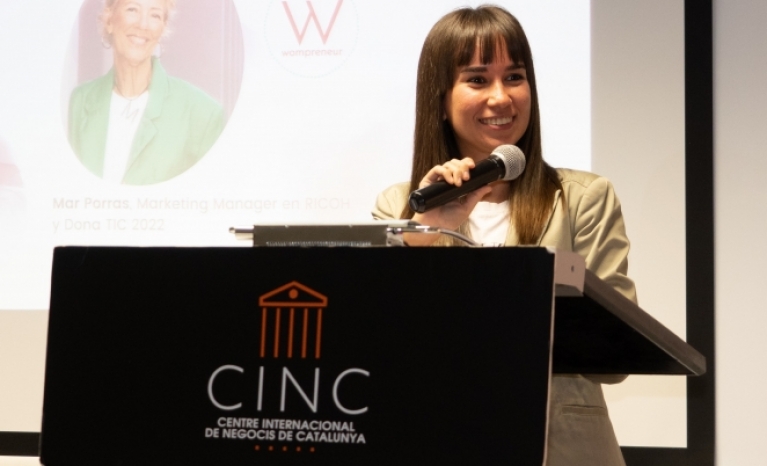"Digital has changed everything". In this article posted on the NCVO blog, Karl Wilding offers an insight into the challenges faced by charity leaders in the digital society.
Digital changes everything
I was lucky enough to be involved in a workshop full of great conversations at the last NCVO's annual conference. Titled ‘how to be a better leader’, it was led by Edward Kellow (a leadership consultant), Shaks Ghosh (of Clore Social Leadership) and myself. Our thinking in running the workshop was that we could talk about how we might strengthen leadership from the perspective of the individual, the organisation and the sector.
Edward and Shaks gave great presentations – they’ve seen it and done it as senior people in their respective organisations. Edward’s reminder that we all need to create time and space to think, and argument that for CEOs in particular a coach is vital, were important points.
Shaks talked about the importance of leading organisations that are agile and adaptable so that they can flex in a changing world, but above all else reminded us of the need to keep sight of our ‘north star’ and to shape and live our values. Good stuff.
I was asked to talk about what we need from leadership in the social sector more broadly. I’ll be honest, I was a bit daunted by this – I’m neither a CEO nor have I had much in the way of leadership training. I just spoke from personal experience, it seemed to work well, so I thought I’d jot down my thoughts in case others found them useful. It’s in two parts, it’s not exclusive/exhaustive, it’s meant to be the prompt for conversation.
The external environment for charity leadership has changed
Here are six aspects of that changing environment (reminder, it’s not definitive).
- Digital has changed everything. Everything. Not just how organisations deliver services, or fundraise, or campaign, but the cultures and values of our stakeholders. Business models everywhere are being disrupted. The rise of ubiquitous, always-on mobile tech means we are always on, in the public eye. And these weapons of mass distraction mean the only thing that’s scarce these days is attention.
- The millennial workforce. You know, the people who entered the workforce from 2000 onwards (and subsequently Generation Z), the ones who sit at their desks with earbuds in, plugged into their smartphones. Better educated than my generation, digital natives, socially driven and, as Diana Aviv so astutely puts it, sector agnostic. Millennials want to do some good, they don’t care which sector they do it in. And they want to use their tech while doing it.
- Blurring boundaries between sectors. Boundaries with the private, public and household sectors are blurring: at those boundaries we’re seeing the emergence of hybrid organisations (social enterprises, public sector mutuals); and individuals are finding it easier to do stuff themselves. Organising without organisations has become ridiculously easy. Workers are moving between sectors more.
- We are all investors now. Commissioners, donors, volunteers all have what you might call an investment mindset: everyone wants to know what the value is of their contribution, what extra value that will leverage, what impact the whole thing has. Sure, some people still give time and money regardless, but the dominant paradigm is investment and return.
- Speed of change. Maybe it was always so, but tech cycles are getting shorter, as are funding agreements. Sadly however, economic slumps are not. Strategic plans are for months, not years and characteristics such as agility and adaptability are the new sustainability.
How can we better leaders in that environment?
I’m not the messiah etc, so here are just a few thoughts in response from me about what we can think about.
- Learn to be digital natives. In a world where second screening is going to be the norm, think less about work life balance, think more about blend. Use Twitter. Blog your thoughts on relevant stuff. Get some help to manage your news feeds using some of the simple digital tools available (Twitter users: Tweetdeck is a must).
- You know something, John Snow. While Game of Thrones inevitably tells us much about leadership, that’s another blog post. The John Snow I think is important is the physician and founding father of epidemiology, known for mapping the cholera outbreak in London’s Broad Street. Anyway, Snow said ‘work like a bookkeeper, think like a poet” – crucial in an era where we need data and evidence, but also stories about the difference we make. Head and heart. As leaders we need to be data driven, but also chief storytellers.
- Make sure you have glass pockets. Transparency and accountability is essential in a digital world, where we are always on view and where the expectation is that we should be able to find out anything about your organisation. As leaders, I think we should particularly lead by example on transparency around senior pay. You can see how much I am paid on our website. What’s the worst that could happen?
- Authenticity is everything for leaders. We need to live the values that are on the wall. Use language and write in a way that people outside our bubble would use and understand. Do our own stuff – I was recently asked by a journalist if I write my own tweets. Obviously some don’t.
- Be open and available. That’s not the same as always on, but be prepared to engage with stakeholders on social media, share a bit about yourself – in the case of Twitter, what some have called whole person tweeting. It will help people understand you and whether or not they have shared values with you.
- Run networks, not just organisations. I reckon networks are everything in the digital age, the way to scale in a way that big organisations don’t or can’t. As network leaders (or network weavers), we meed to model behaviours that build networks – be open, transparent, collaborative, reciprocal, leave egos aside. It’s amazing how much you can achieve when you don’t care who gets the credit. We need to make sure we have set the dial at engage, not broadcast. And we need to move beyond the filter bubble and engage with different points of view, not just supporters.
This article was originally published on the NCVO blog on 19 April 2016.












Add new comment